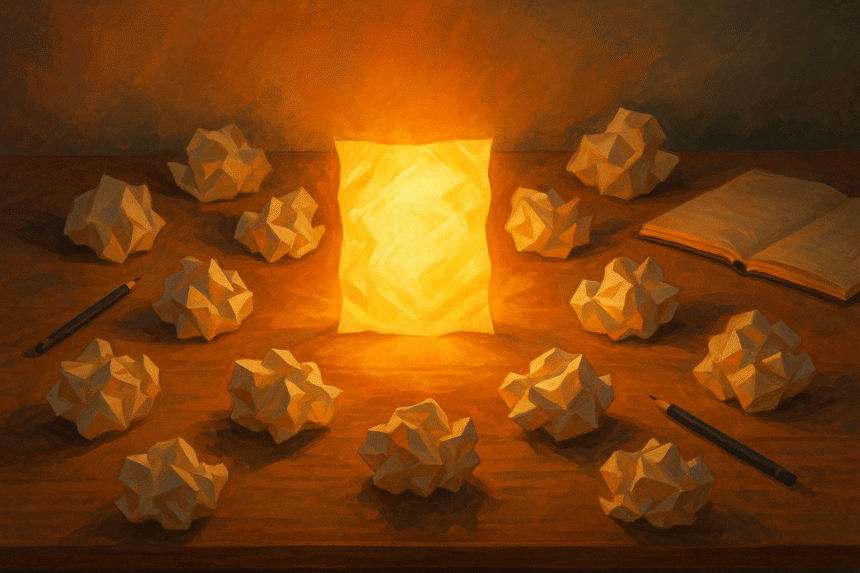Every great idea, at some point, looked like a mistake.
It may have sounded ridiculous, impossible, or just plain wrong. It might have been the kind of idea you scribble down at 2am and wake up embarrassed about. The kind you almost don’t admit to thinking.
But often, what we call a bad idea is just an early idea. Something raw and unfiltered. Something the world — or even we — aren’t ready for yet.
The best ideas are often the ones that make you a little uncomfortable.
David Lynch
Think about it. The idea of sleeping in a stranger’s home, paying money for it, and calling it “travel”? Ridiculous. Until Airbnb. The notion that an encyclopedia could be edited by random people online? Unthinkable — until Wikipedia redefined authority. There are hundreds of stories like this, not because the ideas were perfect, but because someone gave them time to grow.
The problem isn’t that we have bad ideas. It’s that we abandon them too early. We expect brilliance to arrive fully formed, dressed up in logic and elegance. But most real ideas — the ones with some strange energy to them — come in sideways. They show up awkward, half-baked, and often laughable.
That’s how originality feels at first.
An idea that is not dangerous is unworthy of being called an idea at all.
Oscar Wilde
You might be trying to solve a problem or create something new, and suddenly an idea pops up that seems off — too weird, too risky, too unlike what everyone else is doing. That instinct to reject it immediately? That’s your inner critic, trained by school systems, social media, and corporate culture to value neatness over novelty.
But if you can pause — if you can let the idea live a little — something shifts.
Maybe that weird angle opens up a new direction. Maybe the “wrong” idea reveals a more honest one underneath it. Or maybe, with some shaping, that ridiculous little thought becomes the most authentic thing you’ve made in years.
Bad ideas aren’t always bad. Sometimes they’re just early. Unedited. Untranslated. And if we stop judging them too quickly, we might find that what we were trying to say all along was hiding in them.
This doesn’t mean every silly thought is genius. Most won’t go anywhere. But that’s not the point. The point is to keep showing up to the process — to trust that curiosity leads somewhere, even if it starts with something strange.
Curiosity will conquer fear even more than bravery will.
James Stephens
Real creativity doesn’t come from always being right. It comes from not being afraid to be wrong on the way there.
So the next time something crosses your mind and your instinct is to say “no, that’s stupid” — pause. Write it down. Let it sit. Play with it. Because what looks like your worst idea today might, in time, turn out to be something rare: yours.








